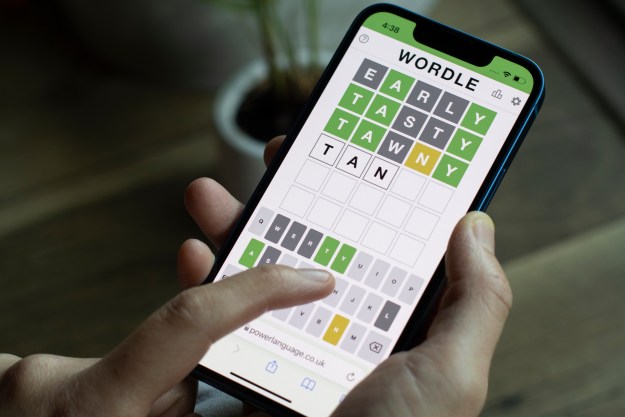An automated Twitter account that posted Wordle spoilers to people who shared their results has been suspended.
The spoilsport bot replied to folks sharing their results, posting the solution to the next day’s puzzle and, for good measure, adding an insulting message along the lines of, “People don’t care about your linguistic escapades,” and, “This doesn’t make you look smart.”
Wordle, an addictive daily word puzzle that recently took the world by storm, challenges players to discover a five-letter word within six tries. One of the features that helped it to go viral is that it lets you share your result with others without giving away the solution.
The daily dose of delight that the game brought to people’s lives, and the fun of sharing the result, prompted some miserable soul to create The Wordlinator, a bot account “sent from the future to terminate Wordle bragging,” according to its bio.
As noted by GameSpot, the bot appeared shortly after media reports about Robert Reichel, a software engineer who found a way to uncover Wordle’s daily solution by deciphering the game’s source code, suggesting the person behind The Wordlinator used Reichel’s shared discovery to create the automated account.
While Twitter has zapped that particular bot, other similar attempts to ruin Wordle’s daily challenge could be incoming, so keep your eyes peeled if you’re sharing your results on the microblogging service.
A happier tale
When Wordle began to take off earlier this month, a number of unscrupulous developers tried to cash in by creating mobile apps that copied the web-only game.
The move was particularly disappointing as Wordle‘s creator, Josh Wardle, was keen not to monetize his game, whether through ads or other means.
Many of the copies have now been taken down, though at least one, called Wordle!, remains. That’s because it was created several years ago by developer Steven Cravotta.
With Wordle’s success, Cravotta’s own app started to generate revenue after years of inactivity, prompting the developer to reach out to Wardle with the idea of donating the proceeds from his app to a charity agreed by both.
Wardle was delighted by the gesture, describing Cravotta as “a class act.”
Editors' Recommendations
- Wordle Today: Wordle answer and hints for April 29
- My favorite game of 2023 is a secret Twitter eulogy
- If you love Wordle and Connections, Puzzmo may be your next daily obsession
- You can’t share Xbox screenshots or videos directly to Twitter anymore
- Move over, Wordle: The New York Times has a new puzzle game


